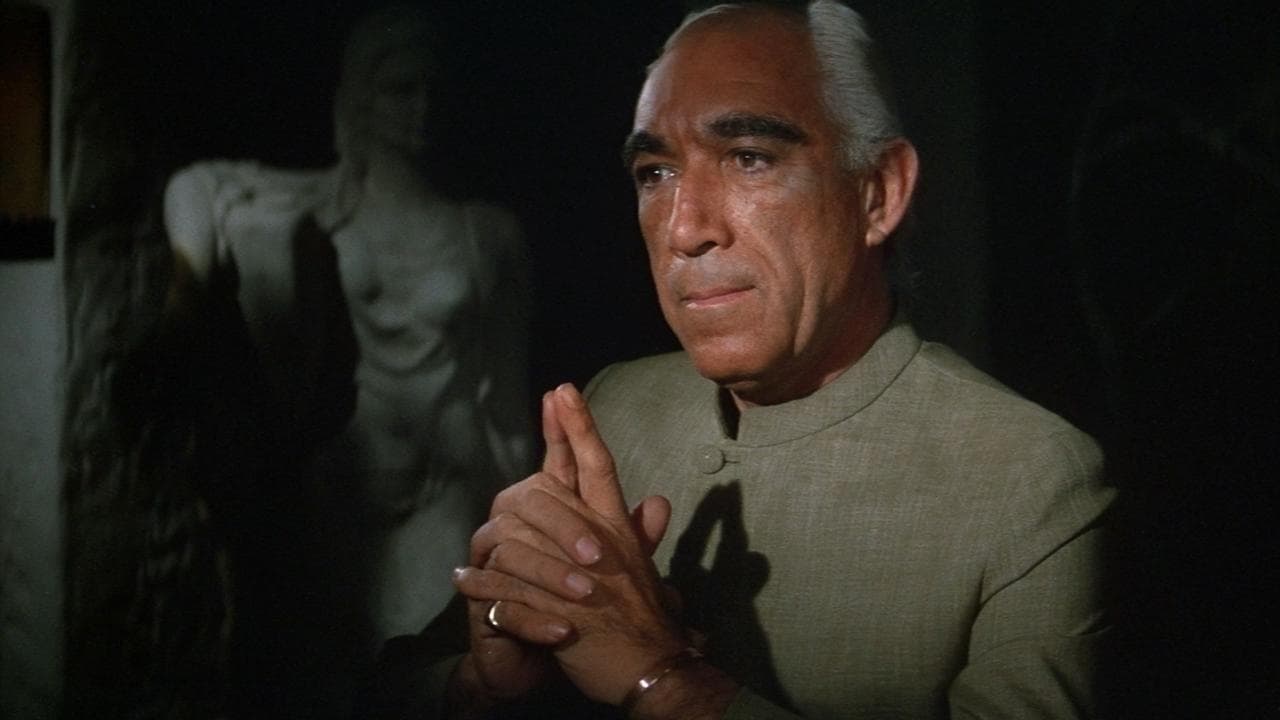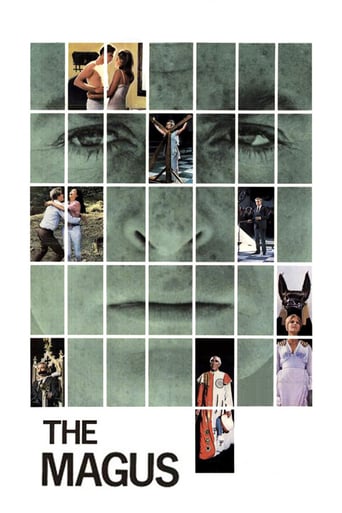

Sadly Over-hyped
... View MoreI was totally surprised at how great this film.You could feel your paranoia rise as the film went on and as you gradually learned the details of the real situation.
... View MorePretty good movie overall. First half was nothing special but it got better as it went along.
... View MoreTrue to its essence, the characters remain on the same line and manage to entertain the viewer, each highlighting their own distinctive qualities or touches.
... View MoreThis looks so good. Majorca, in the main, standing in for Greece. And it should have been good. The novel was a rite of passage for those of a certain age and this little picture is what we get. Pretty picture, pretty poor. I thought watching this and seeing nothing, not only not make sense, but not even be involving. Surely the director has some vision here because surely Fowles in adapting his own novel, will have some vision. But, no the more it goes on, the more it goes on. Poor Michael Caine looks lost wandering through this bland and meaningless landscape of pretentiousness. He is lost, as are we and the suspicions I had as I watched aghast was that maybe nobody knew what was going on or what they were doing. The plentiful extras supplied with the Blu-ray confirm this with the contribution of the director's son who apparently got to help with the filming, particularly helpful. Majorca was beautiful and largely unspoilt but nobody least of all Fowles seemed to know what they were doing there. So sad because we have a very pretty Anna Karina and Candice Bergen falling over themselves to look silly as Anthony Quinn prattles on, seemingly the only one who has any belief in the project that was clearly dead even before the cameras began to roll.
... View MoreI love a tricky movie. However, over the decades, we have been prepared by the work of filmmakers such as David Lynch, Denis Villeneuve, Jonathon Glazer and others to expect the unexpected. I can see how "The Magus" would have left many in a 1968 audience wondering if the projectionist had mixed up the reels.Although "The Magus" is a pretty light workout compared to "Lost Highway" or "Vanilla Sky", in a way it was getting us ready for those films. It's greatest influence at the time was possibly the films of Ingmar Bergman.Nicholas Urfe (Michael Caine) takes a teaching position on the Greek island of Phraxos. When he encounters the wealthy, reclusive Maurice Conchos (Anthony Quinn), he experiences events that seem at first like practical jokes, but as they become more bizarre he isn't sure if he is losing his mind. He seems to be caught in re-enactments of the events in the life of Maurice Conchos, which also relate to his own.Apparently Michael Caine hated the film lumping it with "The Swarm" and "Ashanti" as his worst films. Candice Bergen didn't understand it at all although she was one of its major attractions.Maybe they were responding to a movie that was a little ahead of its time as far as structure was concerned. "The Magus" is anything but linear and I have to admit I'm not sure I understand the end. Although it probably isn't the most definitive of the 'is it real or is it imagined' genre, I think the journey is an absorbing one.The cast is just about perfect. Anthony Quinn eats up his role as the Magus - magician, illusionist, physician or faker. Michael Caine, despite his doubts about the film, gives an arresting performance, informing his role with a lack of emotion that plays about right for the hedonistic and selfish Nicholas.Possibly director Guy Green's straightforward approach to every scene including flashbacks whether real or imagined is a little heavy-handed, but it also adds to the obscuration - we are never sure about what we are seeing.John Dankworth contributed an effective score - capturing a sense of mystery and infusing it with a hint of Greek music along with some trademark jazz influenced themes - without overdoing any aspect."The Magus" is a fascinating attempt at something different, and it's definitely a lot better than "The Swarm" and "Ashanti".As Albert Einstein once said, "Reality is merely an illusion, albeit a very persistent one".
... View MoreFowles' first novel became the darling of the emerging counterculture of the 60s. It fit a handy niche of layered narratives, connected in ways that emulated the emergence of "secret" cosmologies. By itself, it created a little stir because of the way it was folded by a certain kabbalistic technique while including reference to that technique. The history of this makes it essential viewing. Its Fowles' first novel, partially autobiographical, taking over a decade to write. Its grand, risky, sloppy. It is perfect in its way, being as confusing in how it is written as the narrator within is. Its a happy accident that its deficiencies increase the effect.The screenplay is quite a bit more incompetent and at the same time leaving out most of the ambiguities in the story. So the film is a disaster. Fowles would later straighten up the narrative in the novel and issue what in the film world would be a "director's cut" which tries to keep the ambiguities in the story but reduce them in the narration. Its far less effective than the original.So why should you see this? Because it is a historical document that changed things significantly. Its based on two sources: one was a then little-known set of Kabbalistic lessons on Tarot ambiguities. The other is a piece of literary theory from the thirties: "Seven Types of Ambiguity." (Don't search it out: it is far less interesting than the title implies.)Fowles simply conflated his own life (and remorse over handling a romance) into these two notions, deliberately trying to capture the seven types which incidentally inform my study of narrative folding.In September of 1966 while in Spain for the filming of "How I Won the War," John Lennon, who hardly read anything, read this (twice, once heavily rugged) and it changed his life, the direction of The Beatles and hence enfranchised a new form of narrative. (He called and later visited Fowles while this script was in development. There is no artifact of that in the script.) Its not Joyce, but it is the child of what he envisioned, dumbed down, but still raising the bar for narrative structure and affecting I assert nearly everything.Ted's Evaluation -- 3 of 3: Worth watching.
... View MoreI loved the gorgeous Greek scenery but the story, which is not something you can follow anyway, was even harder to follow in the movie. I cannot imagine how anyone watching the movie can get any kind of grip on it if they have not read the book, and then, like me, they would probably wonder why Australian Allison turned into French Anne, and many other seemingly pointless changes in the story. The mysteries in the book seemed to be chopped up or left out in the movie. I saw it when it first came out and had the same problems with it then, since I had read the book several times. I recently watched it with my granddaughter (very intelligent at 20 and usually into movies I like) who was mostly amazed at how young Michael Caine and Candace Bergen were in it, but otherwise could not imagine why one would watch it except for the scenery.
... View More